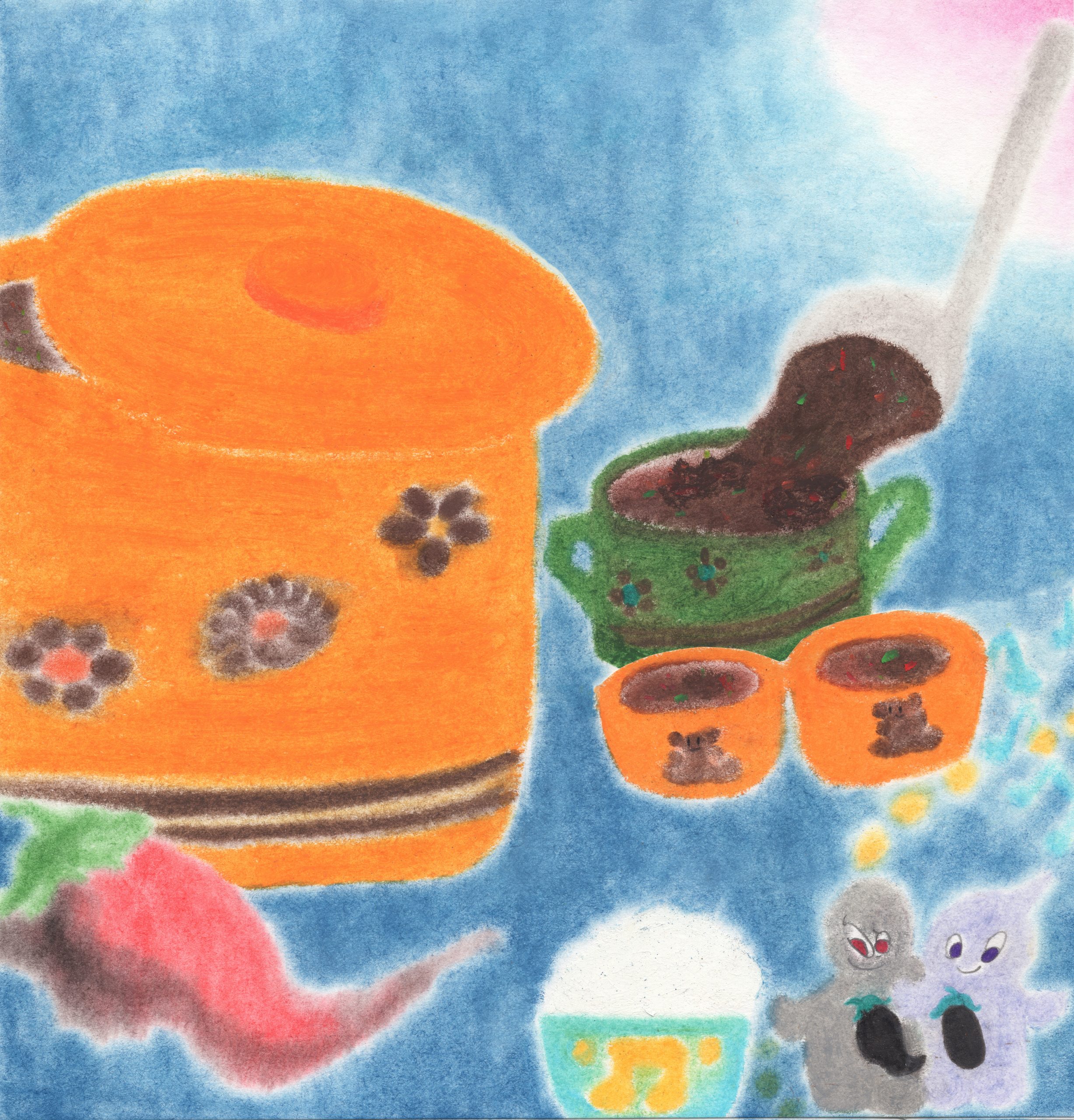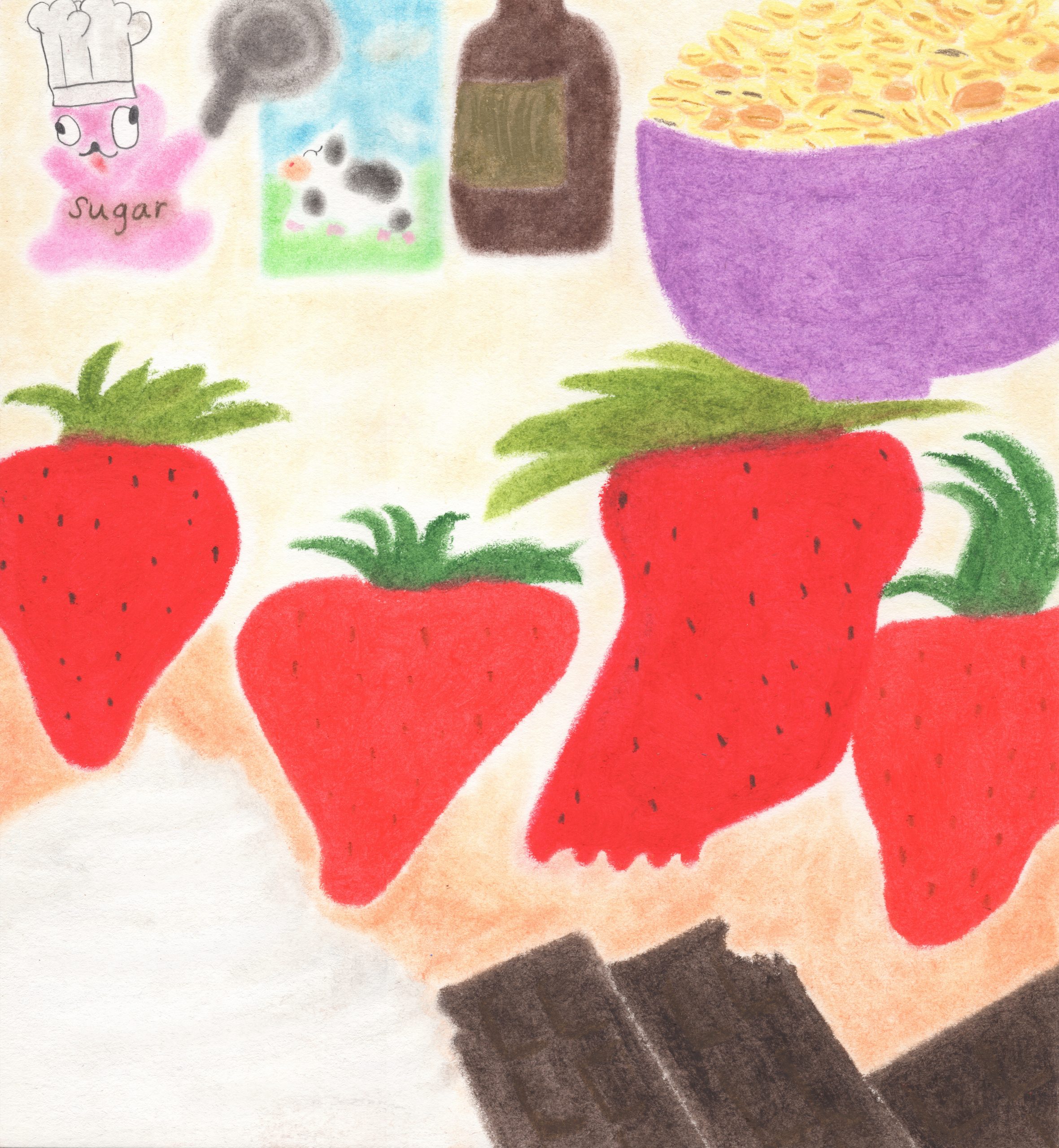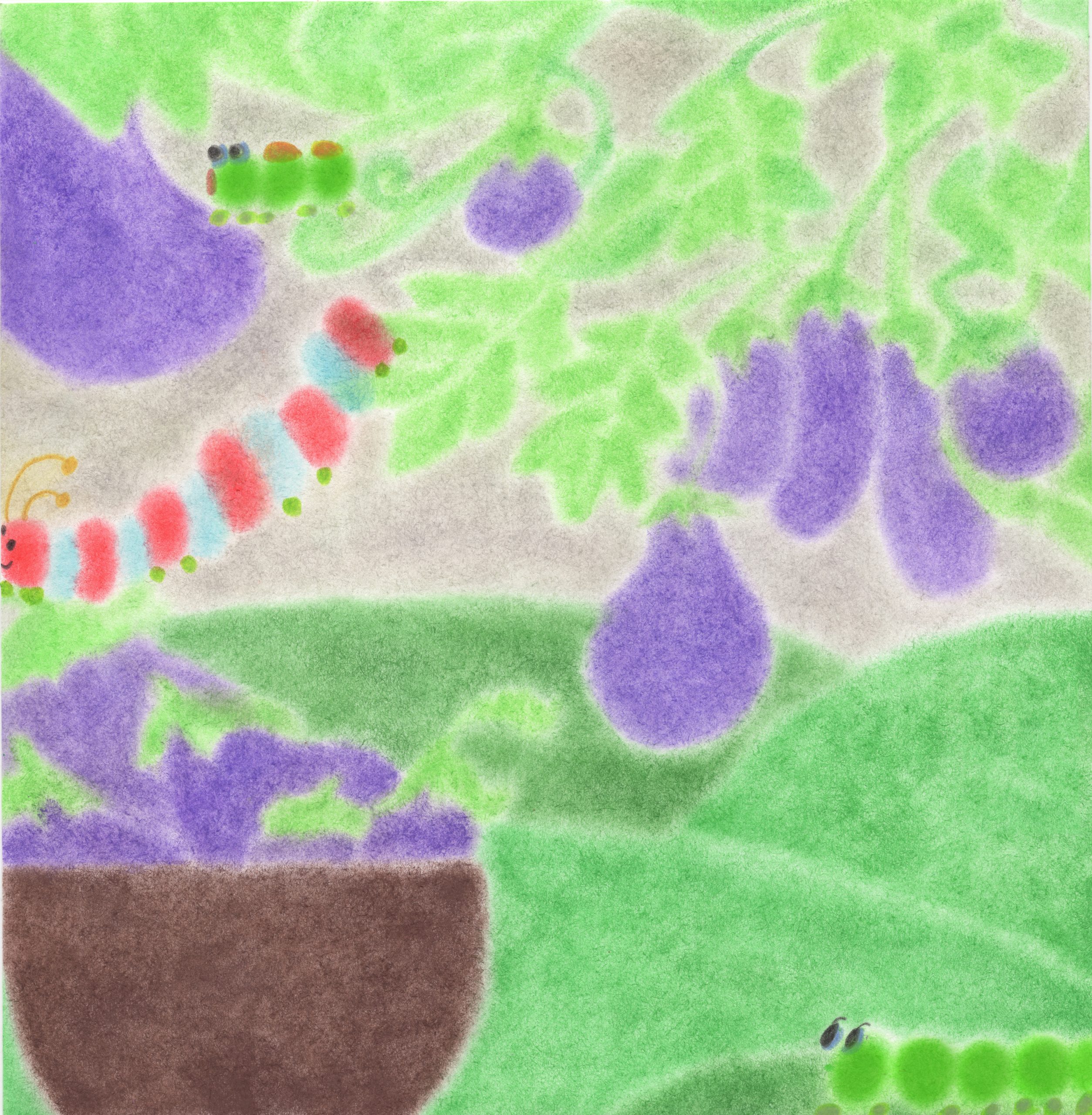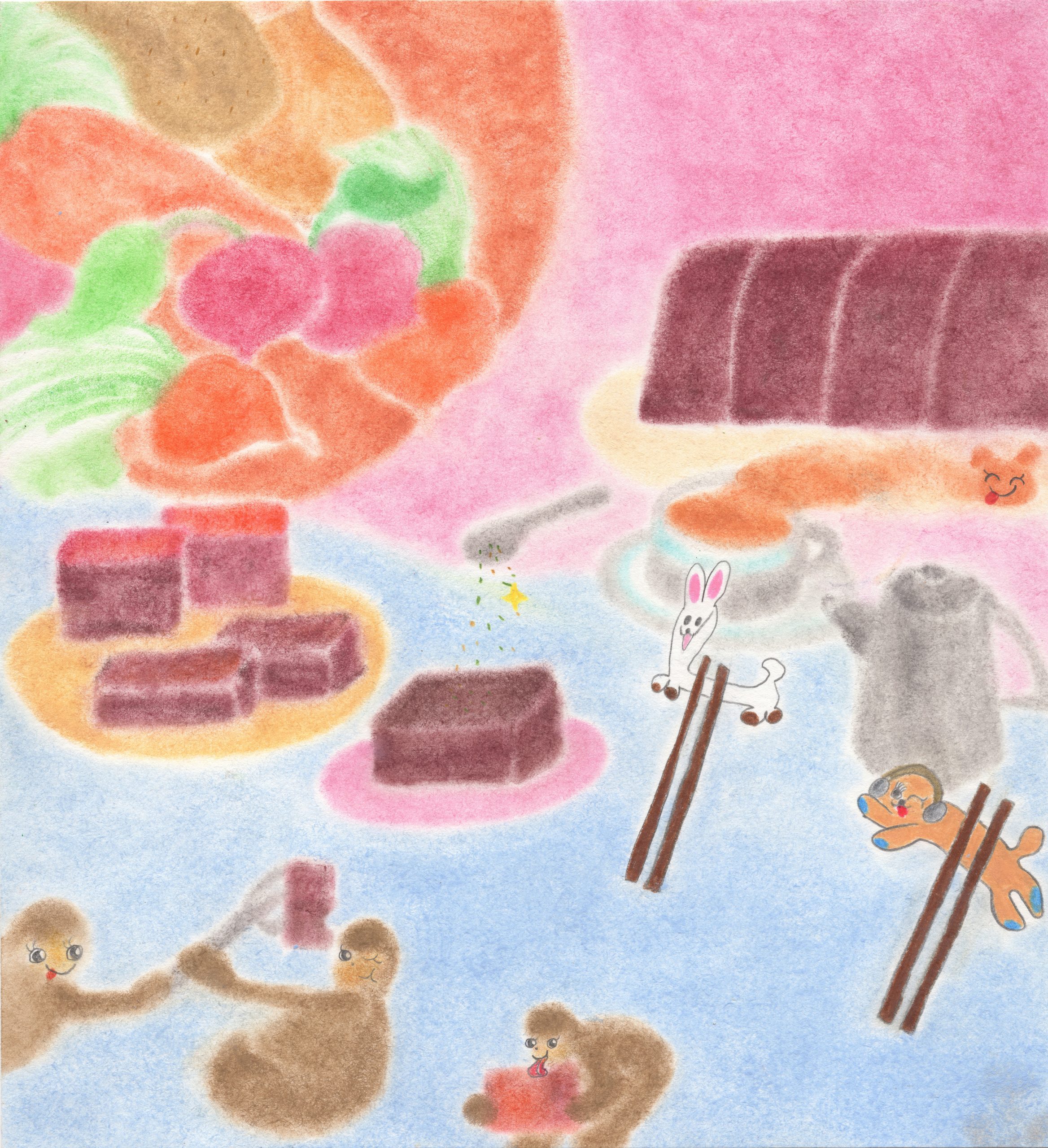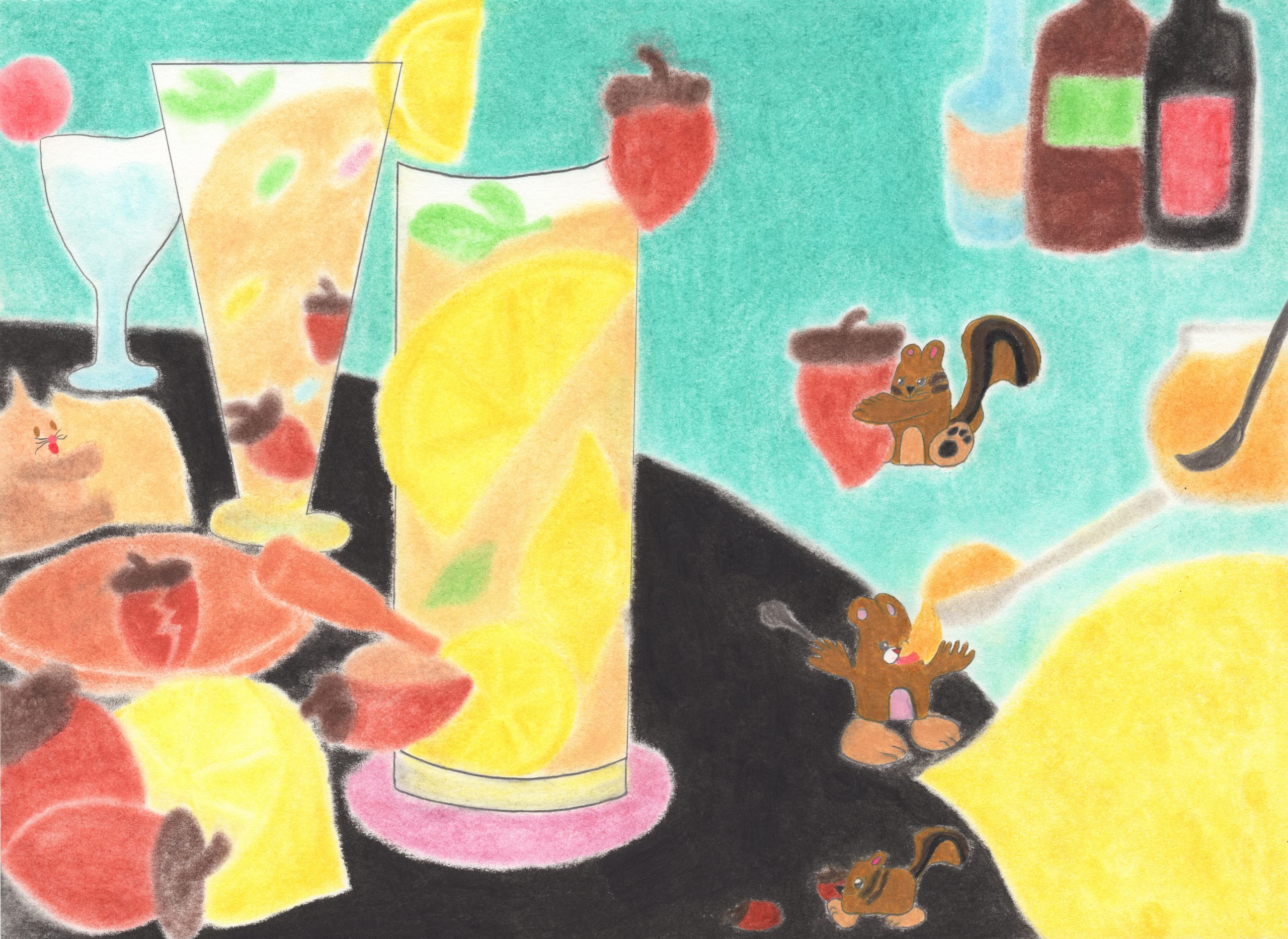Required Reading is a series that pairs original recipes with reflections on revolutionary texts.
“No Black person will ever believe that George Jackson died the way they tell us he did.”
James Baldwin
“Jackson’s assassination at the hands of the American police was an orchestrated coup; whether it emanated from Reagan’s meeting rooms or merely from the office of the prison guards, the target remained the same: a black man who thinks and who writes what he thinks and whose book announces and prepares a black revolution.”
Jean Genet
In 1961, George Jackson was struck with an indeterminate sentence of one year to life after being accused of stealing $70 from a Los Angeles gas station. After enduring eleven years inside California prisons, seven and a half of which were in solitary confinement, he was assassinated at the hands of San Quentin prison guards on August 21, 1971. His murder motivated the Attica Prison uprising the following month, which began with a silent hunger strike the morning of September 9th and ended with the all-white troop of state officials and prison guards massacring 43 people on September 13th1. On the anniversary of his death in 2018 and again in 2021, incarcerated organizers across the country coordinated a strike demanding an end to prison violence and penal slavery.
At the memorial service for George Jackson, the Minister of Defense of the Black Panther Party Huey P. Newton remarked that to go on with life as a revolutionary example “was the most important thing that one can ever do, because that cannot be killed.”2 Jackson knew no other alternative could set him or his people free—as in wholly conscious of his own self, his own history, with the ability to determine his purpose. “As a slave,” Jackson wrote, “the social phenomenon that engages my whole consciousness is, of course, revolution.”3
His revolutionary study and action inside (and beyond) prisons imprinted George Jackson into history as a “dragon philosopher,” a term borrowed from Ho Chi Minh who said people who have been inside prison can build up a country, for the real dragon will fly out of the prison doors.4 And Blood In My Eye, edited by Toni Morrison for posthumous publication, is his political treatise.5 His visceral awareness that “the fascists already have power” assured him that our two choices are “to continue as we have done for forty years fanning our pamphlets against the hurricane, or starting to build a new revolutionary culture that we will be able to turn on the old culture.”6 He lent all his capacity to the latter, co-founding the Marxist-Leninist organization Black Guerilla Family with other incarcerated revolutionaries invested in an “infrastructure capable of fielding a people’s army.”7
Jackson was never ambiguous about his target being the United States government, which is fair, for they targeted him first. “Just a glance into our lives,” would reveal the “exceedingly violent disposition of the U.S.A. ruling class,” which had ingrained racism into its institutions and traditional attitudes.8 But still, he believed we all were capable of revolutionary change, writing, “While I sincerely felt that Europeans were not capable of communistic unitarian behavior, I felt this only briefly since unitarian, progressive conduct seems to be a problem for all of us after hundreds of years of steadily centralizing capitalism and after thousands of years of hierarchy.”9 After all, he is right that we will need as many people as possible for the “eventuality of bringing the U.S.A. to its knees.”10
To carry out the legacy of George Jackson cannot but mean embodying a bias towards action, as “Waiting for power to move to its inevitable collapse is suicidal for all concerned.”11 So it is settled, here is where “The debate ends, the action begins.”12 Otherwise, “what will we inherit? A desert?”13
- 1. Remembering the Attica Prison Uprising
- 2. Blood In My Eye
- 3. Ibid.
- 4. George Jackson Dragon Philosopher and Revolutionary Abolitionist
- 5. Jonathan Jackson Jr. refers to Blood In My Eye as his uncle’s political treatise in his foreword to Soledad Brother, June 1994
- 6. Blood In My Eye
- 7. Ibid.
- 8. Ibid.
- 9. Ibid.
- 10. Ibid.
- 11. Ibid.
- 12. Ibid.
- 13. Ibid.
✺ SPICY GOAT STEW14 ✺
toasted cassava flour, flowering herb
- Goat leg, cut into pieces (4lb.)
- Onion, diced (1)
- Garlic, chopped (4 cloves)
- Scallions, chopped, whites and greens separated, (2)
- Ginger, sliced into thin sticks, (1 in.)
- Scotch bonnet pepper, sliced, seeds removed (1)
- Cumin, ground (1 tsp)
- Allspice, ground (1½ tsp)
- Nutmeg, ground (½ tsp)
- Mustard Seeds, ground (1 tsp)
- Clove, ground (1 tsp)
- Paprika (1 tsp)
- Cayenne pepper (½ tsp)
- White vinegar (½ c, plus more for cleaning meat)
- Cassava flour (2c)
- Canola oil
- Salt
- Flowering herbs, like chives or thyme, for garnish
For goat:
Wash meat in a solution of water, vinegar and salt. Allow to soak for 5-10 minutes before rinsing and drying thoroughly with paper towels.
Mix ground spices and add to cleaned meat. Mix until evenly coated and allow to marinate overnight.
Heat oil on medium-high in a Dutch oven or another heavy, high walled pot.
Cook goat in oil until meat is well browned. Remove from the pot and set aside.
Add ½ cup vinegar to pot and begin scraping the bits that are stuck to the bottom. Allow to reduce completely.
Reduce heat to medium, add onions and cook until softened and translucent. Add garlic, ginger, scotch bonnet and scallion whites and cook until fragrant.
Add browned meat, mix, then add enough water just to barely cover. Add scotch bonnet. Bring to a boil, reduce heat to low, and allow to cook until tender. Cook time depends on your meat and your pot, roughly 2-3 hours. Adjust salt to taste.
For cassava soil:
Toast cassava flour in a dry skillet, moving constantly, until very deep brown. Mix in some of the cooking liquid from the goat until texture resembles clumpy, moist soil.
To plate:
In a bowl, portion goat, then cover completely with cassava soil. Garnish by “planting” flowering herbs.
- 14. In terms of calls to revolutionary action, the combination of theory and practice, Blood In My Eye is by far the most militant, explicit, and candid; the spiciest text in the Required Reading series.
- 15. Blood In My Eye and Soledad Brother were written in the last eleven years of his life, while he was incarcerated, underground. Cassava flour is a coarse meal made from dried cassava (yucca, manioc). The toasted cassava is moistened with the deeply colored gravy from the goat.
- 16. Though George Jackson was killed while kept underground, his words and ideas could not be contained within the walls, and continue to influence and inspire revolutionary consciousness even after he is long dead. The described plating suggests flowers rising from soil, which is flavored with the essence of what is hidden underneath. The herbs also offer some brightness to the deeply colored and heavily seasoned stew.
